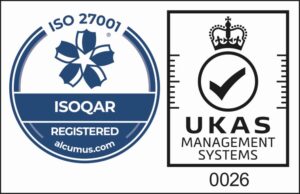IT MSPs and Business Continuity Planning
Highlighting the importance of MSPs in assisting businesses with creating comprehensive business continuity plans, including backup and disaster recovery strategies.
Business continuity planning is crucial for organizations to ensure the resilience of their operations in the face of unexpected disruptions, such as natural disasters, cyberattacks, or equipment failures. IT Managed Service Providers (MSPs) play a vital role in assisting businesses with creating comprehensive business continuity plans that include robust backup and disaster recovery strategies. Here’s an in-depth look at how MSPs contribute to business continuity:
Risk Assessment and Planning
MSPs work closely with businesses to conduct thorough risk assessments, identifying potential vulnerabilities and threats to critical IT systems and data. Based on the assessment, MSPs help develop a comprehensive business continuity plan that outlines strategies for mitigating risks, including backup, disaster recovery, and contingency plans.
Data Backup and Recovery
MSPs implement secure and reliable data backup solutions to protect critical business data. They establish backup schedules and implement automated backup processes to ensure that data is regularly and consistently backed up. MSPs employ best practices, such as offsite backups and redundant storage, to safeguard data integrity and accessibility. In the event of data loss or corruption, MSPs facilitate efficient data recovery, minimizing downtime and data loss.
Disaster Recovery Planning
MSPs assist businesses in developing disaster recovery plans that outline step-by-step procedures for restoring IT systems and operations in the event of a major disruption. This includes identifying recovery time objectives (RTOs) and recovery point objectives (RPOs) to establish the maximum acceptable downtime and data loss thresholds. MSPs help businesses choose appropriate disaster recovery solutions, such as redundant infrastructure, cloud-based replication, or hybrid solutions, to ensure rapid recovery and minimal business impact.
Testing and Validation
MSPs facilitate regular testing and validation of business continuity plans to ensure their effectiveness. They coordinate and conduct simulated disaster scenarios, allowing businesses to assess the readiness and effectiveness of their plans. MSPs analyze the results, identify areas for improvement, and refine the plans accordingly. By conducting routine testing, MSPs help businesses enhance their preparedness and minimize potential disruptions.
Proactive Monitoring and Alerting
MSPs employ proactive monitoring tools and technologies to detect potential issues or anomalies that could impact business continuity. They continuously monitor IT systems, networks, and data backups to identify any deviations from expected patterns or performance. MSPs leverage real-time alerts and notifications to address potential risks before they escalate, allowing businesses to take proactive measures to protect their operations.
Business Continuity Consulting
MSPs offer expert guidance and consulting services to businesses throughout the business continuity planning process. They bring industry-specific knowledge, best practices, and regulatory compliance expertise to help businesses develop customized and effective business continuity strategies. MSPs stay updated on the latest trends and technologies, ensuring that businesses have access to the most appropriate solutions for their specific needs.
Rapid Response and Incident Management
In the event of a disruption, MSPs act as a trusted partner, providing rapid response and incident management. They assist businesses in executing their business continuity plans, coordinating the restoration of IT systems, and ensuring minimal downtime. MSPs work closely with internal IT teams or third-party vendors to expedite the recovery process and restore operations efficiently.
By partnering with MSPs for business continuity planning, businesses can enhance their resilience and minimize the impact of disruptions. MSPs bring expertise, resources, and advanced technologies to assist businesses in creating robust backup and disaster recovery strategies. With the support of MSPs, businesses can effectively protect their critical IT systems and data, ensuring business continuity, customer confidence, and operational stability even in challenging circumstances.




